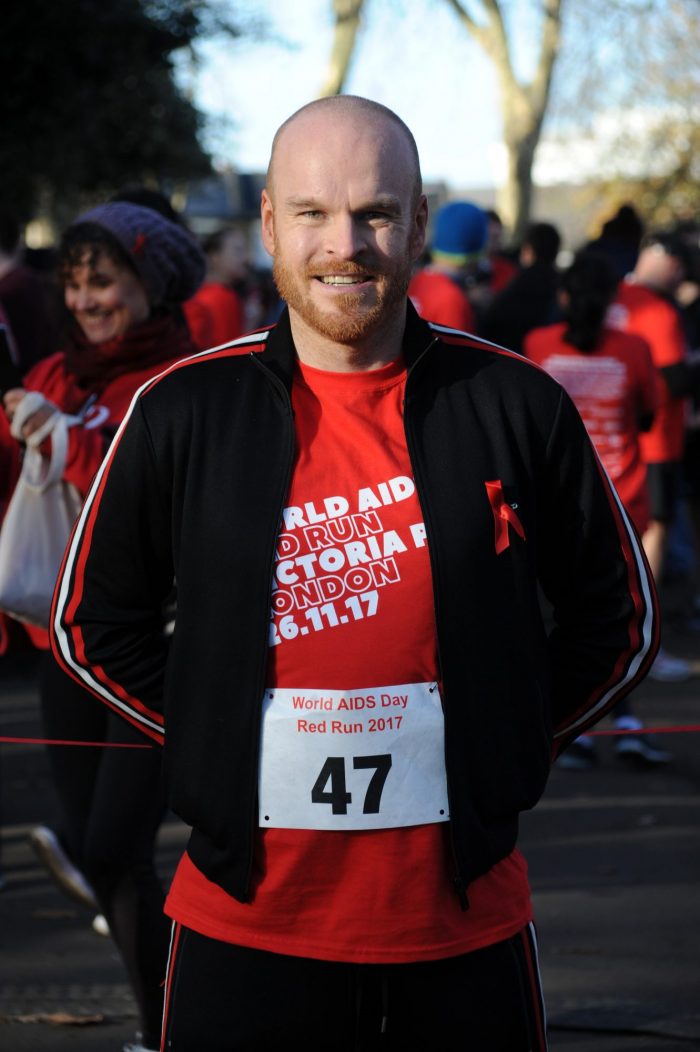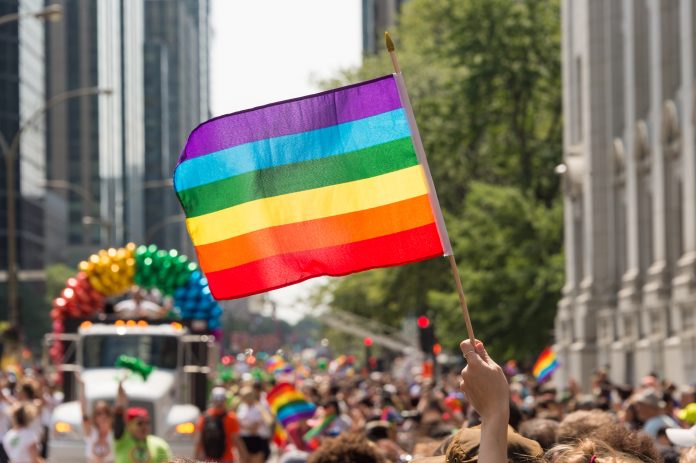This LGBT history month, Philip Baldwin speaks to me about living with an HIV-positive diagnosis and everything in between
There has been a negative association around HIV and the LGBT community for decades. In the UK in 1987, the act of Princess Diana shaking hands with AIDS patients at the opening of a specialist hospital ward without any gloves, shocked and concerned the public.
This widespread persecution enforced an environment in which people were unable to ask for help and access appropriate healthcare, due to the isolation attached to an HIV-diagnosis.
How are things different three decades on?
In this discussion, we take a look behind stereotypes and fear to reflect on history, whilst illuminating the complex, hopeful future.
What kind of things have you been working on?
“I have had a really busy start to 2019. The 18 January marked nine years since I was diagnosed with HIV. I used this as an opportunity to highlight the importance of Pre-Exposure Prophylaxis (PrEP). PrEP is a pill which can be taken by an HIV negative person to prevent the transmission of HIV.
“For Holocaust Memorial Day, which falls on 27 January, I wrote about the gay victims of the Nazi Persecution, who for many decades were written out of the history books, as well as attending a protest rally outside the Russian Consulate. There continues to be state-sponsored persecution of LGBT people globally, including in Chechnya, where there has been a clamp-down on LGBT people.
PrEP is a pill which can be taken by an HIV negative person to prevent the transmission of HIV.
“Over LGBT History Month, which takes place annually during February, I have been speaking in schools and raising awareness of historical LGBT figures, as well as looking at their contemporary relevance.”
I know you have been an active proponent in de-stigmatising the diagnosis of HIV, and that’s been a major part of your life since 2010. Are you seeing a change in attitude to your work?
“This is a really fascinating question and one which I am pleased you asked. Since 2010 we have seen a revolution in terms of the treatment and prevention of HIV. Patients are starting treatment earlier, ideally as soon as possible after diagnosis, meaning that there is less potential for HIV to damage the immune system.
“In terms of prevention, once an HIV-positive person is on effective treatment they cannot pass the virus on. PrEP has been a game changer. As a consequence of these innovations, alongside increased HIV testing, we have seen falling HIV diagnoses in the UK. There was a 28% fall in HIV diagnoses between 2015 and 2017, with 4363 people diagnosed in 2017. Unfortunately, the stigma around HIV remains rife and is a massive problem.
“A report from the Stigma Index, released in December 2015, showed that in the last year around half of the people living with HIV have experienced feelings of shame, guilt or low self-esteem, whilst shockingly 18% had contemplated taking their own life. Within the LGBT community and beyond, I have seen slut-shaming of PrEP users emerge an issue. This is not incomparable to criticism aimed at women in the 1970s following the introduction of the contraceptive pill.”
Secondly, has the global upsurge in Populism affected your work as an HIV-awareness and Gay rights activist?
“The Conservative Party remains firmly committed to LGBT rights, as demonstrated by their LGBT Action Plan 2018. The plan outlines reform of the Gender Recognition Act, the introduction of compulsory and same-sex inclusive Sex and Relationships Education and looks to end the practice of “conversion therapy” in the UK.
“I was, however, saddened that the Plan failed to make a commitment to ending the detention of LGBT asylum claimants. I have observed a worrying increase in the expression of extreme viewpoints, which would not have been tolerated a few years ago. There have been horrific criticism of trans people. It is also no coincidence that there has been a dramatic increase in hate crimes against LGBT people in the UK, with Stonewall research showing a 78% increase between 2013 and 2017.”
There has been horrific criticism of trans people.
Do you think that the UK government is acting appropriately to fight HIV and AIDS?
“For me, the key issue here is access to PrEP. The Government recently committed to doubling the places on the PrEP IMPACT trial from 13,000 to 26,000. It remains uncertain how these will be rolled out and which trial sites will be able to increase capacity. Every HIV transmission is unnecessary and the sooner that PrEP is made routinely available on the NHS the better.”
If you could recommend measures to policy-makers, what would you suggest?
“A comparatively overlooked area is hepatitis C. I was diagnosed with hepatitis C a week after my HIV diagnosis in 2010. I cleared my hepatitis C at the beginning of 2017, following a 12-week course of the new direct-acting antiviral drugs. There are approximately 215,000 people living with hepatitis C in the UK, half of them undiagnosed.
“We urgently need to raise awareness around hepatitis C and the new treatments, which are largely side-effect free. Currently, if an individual clears hepatitis C and is then re-infected, they are ineligible to receive the treatment again on the NHS. This is counter-intuitive, as leaving the virus untreated means that it is more likely to be passed on.”
There are approximately 215,000 people living with hepatitis C in the UK, half of them undiagnosed.
Similarly, what do you think of the NHS’s approach to treatments, and would you recommend any changes to healthcare professionals?
“An area where healthcare professionals could make improvements is for women living with HIV. It is saddening that women living with HIV often experience intimate partner violence. A 2012 study based at the Homerton University Hospital found that 52% of women had experienced intimate partner violence, while a 2018 study by the Terrence Higgins Trust and the Sophia Forum found an even higher proportion of women had experienced this, at 58%. Healthcare professionals should bear this in mind and we could see better support and signposting for women living with HIV.”
women living with HIV often experience intimate partner violence.
I know that you have re-forged your identity after your HIV diagnosis, you’ve also re-incorporated faith into your identity. How has this influenced your activism?
“My faith underpins everything that I do. I am a trustee of the Ozanne Foundation, which seeks to eliminate discrimination based on sexuality and gender within a faith. The Foundation recently released the results of its National Faith and Sexuality Survey, which revealed a lot about so-called “conversion therapy”.
“Twenty-two participants in the survey had been forced to undergo sexual intercourse with someone of the opposite gender. The discredited practice of “conversion therapy” needs to be banned as soon as possible.”

Are there any historical figures who you believe made your work possible?
“Harvey Milk is hugely inspiring for every activist. He was elected to the San Francisco Board of Supervisors in 1977 and assassinated 11 months later. At the time he was the most high-profile openly gay politician in the USA and he played a key role in the development of the global gay rights movement.
“Although not strictly a historical figure, as he is still changing the world today, Peter Tatchell has done so much to shape the way in which LGBT people live in Britain today. He advocates tirelessly on a wide range of human rights issues.”
What would you like to say to the young LGBT community?
“You are uniquely beautiful and special. Celebrate who you are and who you love. We live in a society where being LGBT is no barrier to success.”
Thanks for talking to me about this. I really appreciate your time. Any last comments?
“Thank you for interviewing me. It is so important to give people living with HIV a voice.”
Keep up to date with Philip’s journey by following him on twitter @philipcbaldwin.











